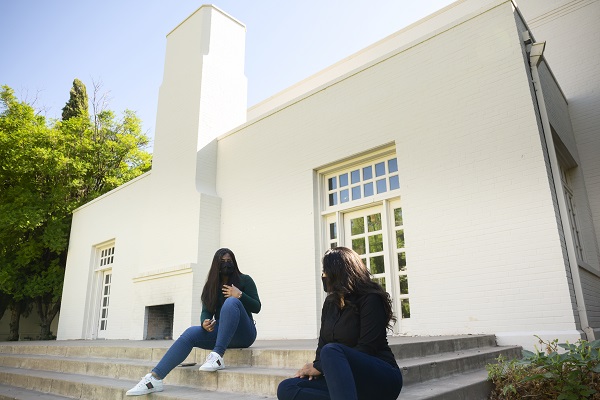Sun Devils engaged in safeTALK suicide alertness training
This fall student leaders in Devils 4 Devils participated in a suicide alertness training to learn how to be aware of the possibility of suicide in others, ask directly about suicide and connect others to helpful resources. SafeTALK’s name itself outlines the goal for the training: Suicide. Alertness. for. Everyone. Tell. Ask. Listen. Keep safe.
In recent years, the importance of mental health has been given the spotlight it deserves. While anyone can struggle with mental health, college students are at higher risk. According to the 2019 National College Health Assessment, in the past 12 months 87.4% of college students felt overwhelmed by all they had to do, 65.5% felt very lonely, 65.5% felt overwhelming anxiety and 45.2% felt so depressed it was difficult to function.
The stress of being in a new environment, perhaps for the first time on your own, can be intimidating. Learning how to prevent, identify and handle depression, anxiety and thoughts of suicide is vital.

Destiny Montero, senior, majoring in communications and Srushti Reddy, junior, majoring in supply chain catch up while social distancing.
Carter Bower, vice president of Devils 4 Devils, is a second-year psychology major. Bower attended the safeTALK training this past month to better himself and those around him.
“It is really important for mental health clubs to be able to recognize signs of suicide or people who are thinking about it,” said Bower. “It helped me be able to talk about it more freely with other people.”
These topics can be very difficult and sometimes intimidating to discuss, but finding the appropriate timing and words were featured topics the training laid out. SafeTALK emphasizes that it’s important to show you’re willing to talk.
“It opens up that dialogue, and it opens up that possibility for someone to get help,” Bower said.
The training taught students how to ask directly about suicide and what to do after the dialogue opens: You listen. It may seem simple, but this is the most important step. Open your ears and take in everything the person is telling you so that you can direct them toward professionals who are trained in suicide prevention.
“The whole idea is that when more people are trained to recognize suicidal ideas in others a more supportive community is created,” said Bower. “We don’t need everyone to be a psychologist, but if people can recognize the people who need help we can refer them to trained professionals.”
Arizona State University has an abundance of resources available to help. Mental health is worth taking seriously, and there are people on and off campus who are available to listen and help.
“People don't know [ASU Counseling Services] is there or they are too scared to use them because it confirms to them they are dealing with suicide,” said Bower. “I think these trainings make the process of thinking about or dealing with suicide less ambiguous. It gives some clarity to people.”
If you are interested in learning more about safeTALK or hosting a training for your student group please contact [email protected]. SafeTALK requires a minimum of six participants and cannot be offered virtually; all trainings must abide by safety guidelines set forth by ASU including face coverings and physical distancing.
If you or a loved one is struggling, please contact the resources below.
ASU Counseling Services
During center hours: 480-965-6146
ASU’s Dedicated Mental Health Line- EMPACT: 480-921-1006
National Suicide Prevention Lifeline
1-800-273-8255
Veterans press 1
ASU Police Department
Emergency: 911
Victims' advocate: 602-965-3456
ASU Dean of Students
480-965-6547
Trevor Lifeline
1-866-488-7386 or text START to 678-678
Devils 4 Devils Community Circles
A peer-led space to connect and build community with other ASU students while physically distancing. All participants will be provided with information on how to access ASU Counseling Services for more formal support.